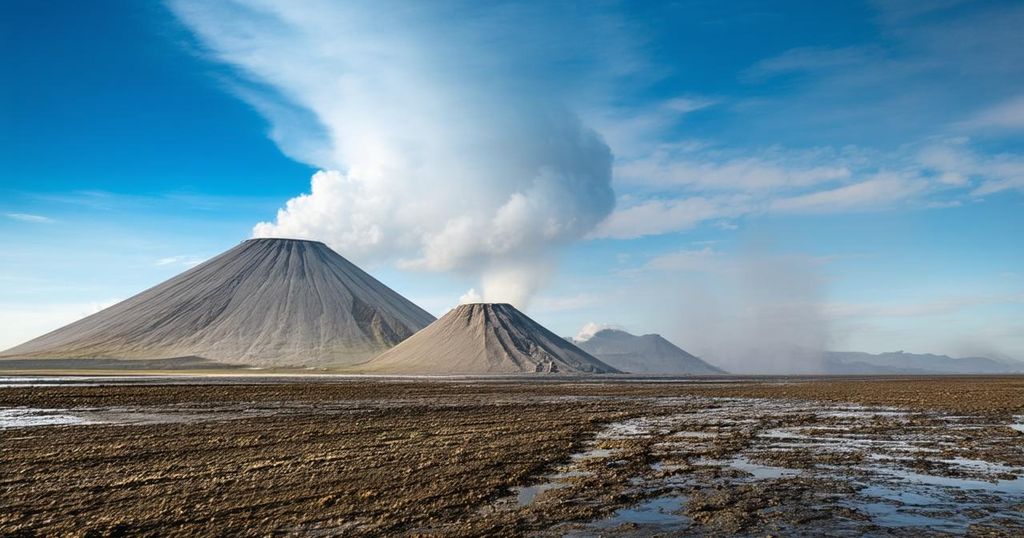UN Secretary-General Antonio Guterres has warned that the world faces catastrophic consequences of climate inaction, with temperatures projected to rise over 3 degrees Celsius by the century’s end. A new UN report emphasizes the urgent need for nations to enhance their climate commitments, particularly ahead of the upcoming COP29 conference, to meet the goals of the Paris Agreement and prevent severe impacts on vulnerable communities worldwide.
At the forefront of global climate discourse, United Nations Secretary-General Antonio Guterres has issued a dire warning regarding the consequences of inaction on climate change. A newly released report by the United Nations highlights that the current trajectory of global climate policies is set to produce an increase in temperatures exceeding 3 degrees Celsius (5.4 degrees Fahrenheit) by the close of the century, significantly surpassing the 1.5 degrees Celsius (2.7 degrees Fahrenheit) cap established in the Paris Agreement of 2015. Guterres emphasized that time is of the essence in adjusting our approach to climate policy to avert catastrophic consequences, stating, “Around the world, people are paying a terrible price.” The report, known as the Emissions Gap Report, underscores the potential for warming to reach as much as 3.1 degrees Celsius (5.6 degrees Fahrenheit) if nations do not enhance their efforts to reduce greenhouse gas emissions. Reflecting on the latest extreme weather patterns witnessed globally, which are expected to escalate in frequency and severity in 2023, he remarked: “We’re teetering on a planetary tightrope. Either leaders bridge the emissions gap, or we plunge headlong into climate disaster.” The report indicates that the world’s poorest populations are bearing the brunt of climate impacts, with increasingly common occurrences of natural disasters such as typhoons, floods, and droughts across various regions. In the preceding year, global greenhouse gas emissions rose by 1.3 percent, hitting a record high of 57.1 gigatonnes of carbon dioxide equivalent. Furthermore, the report projects that even under current commitments, global temperatures are still expected to rise between 2.6 and 2.8 degrees Celsius by 2100. In light of these findings, the upcoming United Nations Climate Change Conference (COP29) in Baku, Azerbaijan, next month is being viewed as a critical opportunity for nations to reassess their Nationally Determined Contributions (NDCs) and enhance their climate commitments. The report calls for a concerted effort to cut annual greenhouse gas emissions by 42 percent by 2030 and 57 percent by 2035 to stand a chance at limiting warming to the previously agreed threshold of 1.5 degrees Celsius. Inger Andersen, Executive Director of the United Nations Environment Programme, urged countries to seize the opportunity presented by the Baku meetings to renew and intensify their climate initiatives, noting, “Every fraction of a degree avoided counts.” Guterres specifically called for greater ambition from the G20 economies, which are responsible for nearly 80 percent of global emissions. As emphasized by Tracy Carty from Greenpeace International, the time for corrections is now, stating, “These reports are a historical litany of negligence from the world’s leaders to tackle the climate crisis with the urgency it demands, but it’s not too late to take corrective action.”
The urgency surrounding climate change has escalated over the past decades, leading to international agreements such as the Paris Agreement in 2015, where nations committed to limiting global warming to well below 2 degrees Celsius and pursuing efforts to limit the temperature increase to 1.5 degrees Celsius. However, a consistent lack of action and compliance with these targets has exacerbated the problem, leading to increased global temperatures and extreme weather events. The Emissions Gap Report serves as a periodic assessment of the disparity between current national pledges and the level of greenhouse gas emission reductions required to meet climate goals. As global temperatures continue to rise, there is an increasing realization that urgent and immediate action is needed to prevent irreversible damage to our planet and its ecosystems.
In summary, the recent warning from UN Secretary-General Antonio Guterres highlights the severe repercussions of inadequate climate action, with projected temperature increases set to exceed critical thresholds. The forthcoming COP29 conference presents an essential platform for countries to commit to more ambitious climate goals in order to mitigate further atmospheric warming and its associated devastating impacts, particularly on vulnerable populations. With the need for significant emissions reductions by 2030 and beyond clearly outlined, cooperation and heightened commitment from global leaders is crucial to avert an impending climate catastrophe.
Original Source: www.aljazeera.com






